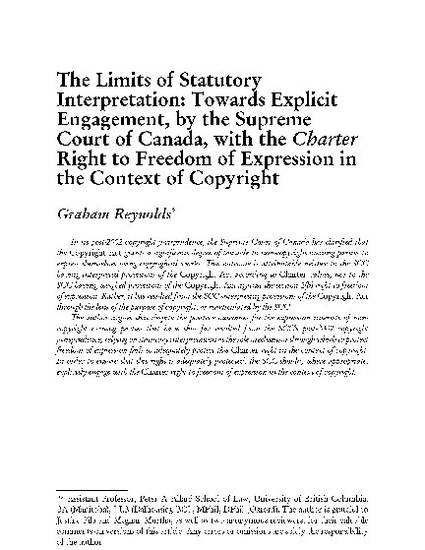
- Statutory Interpretation,
- Supreme Court of Canada,
- Copyright
In its post-2002 copyright jurisprudence, the Supreme Court of Canada has clarified that the Copyright Act grants a significant degree of latitude to non-copyright owning parties to express themselves using copyrighted works. This outcome is attributable neither to the SCC having interpreted provisions of the Copyright Act according to Charter values nor to the SCC having weighed provisions of the Copyright Act against the section 2(b) right to freedom of expression. Rather, it has resulted from the SCC interpreting provisions of the Copyright Act through the lens of the purpose of copyright, as re-articulated by the SCC. The author argues that despite the positive outcomes for the expression interests of non-copyright owning parties that have thus far resulted from the SCC’s post-2002 copyright jurisprudence, relying on statutory interpretation as the sole mechanism through which to protect freedom of expression fails to adequately protect this Charter right in the context of copyright. In order to ensure that this right is adequately protected, the SCC should, where appropriate, explicitly engage with the Charter right to freedom of expression in the context of copyright.

Reprinted with permission.